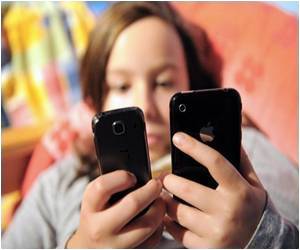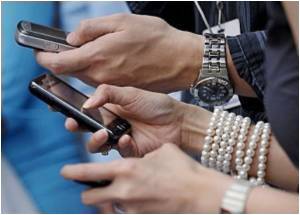A new study has found that students who are heavy texters place less importance on moral, aesthetic, and spiritual goals, and greater importance on wealth and image.

Higher texting frequency was also consistently associated with higher levels of ethnic prejudice.
The UWinnipeg study involved more than 2,300 introductory psychology students who completed a one hour on-line psychology research survey that included measures of texting frequency, personality traits, and life goals. Data were collected at the beginning of the fall semester for three consecutive years.
"The values and traits most closely associated with texting frequency are surprisingly consistent with Carr's conjecture that new information and social media technologies may be displacing and discouraging reflective thought," said Dr. Paul Trapnell, associate professor of psychology at The University of Winnipeg.
"We still don't know the exact cause of these modest but consistent associations, but we think they warrant further study. We were surprised, however, that so little research has been done to directly test this important claim," he added.
The main goal of the study was to test the so-called "shallowing hypothesis," described in the Nicholas Carr bestseller, The Shallows, and by some social neuroscientists.
Advertisement
Trapnell and Dr. Lisa Sinclair, professor of psychology at UWinnipeg, also reported significant annual declines since 2006 in first year students' mean levels of self-reported reflectiveness and openness to experience but not in any other broad personality traits annually measured in their surveys.
Advertisement
More recently, Trapnell and Sinclair took texting into the lab. In their lab study, some students texted, some spoke on cell phones, and some did neither. Then, all students rated how they felt about different social groups. Those who had been texting rated minority groups more negatively than the others did.
They presented these results at the 2013 annual SPSP conference held in New Orleans.
Source-ANI








